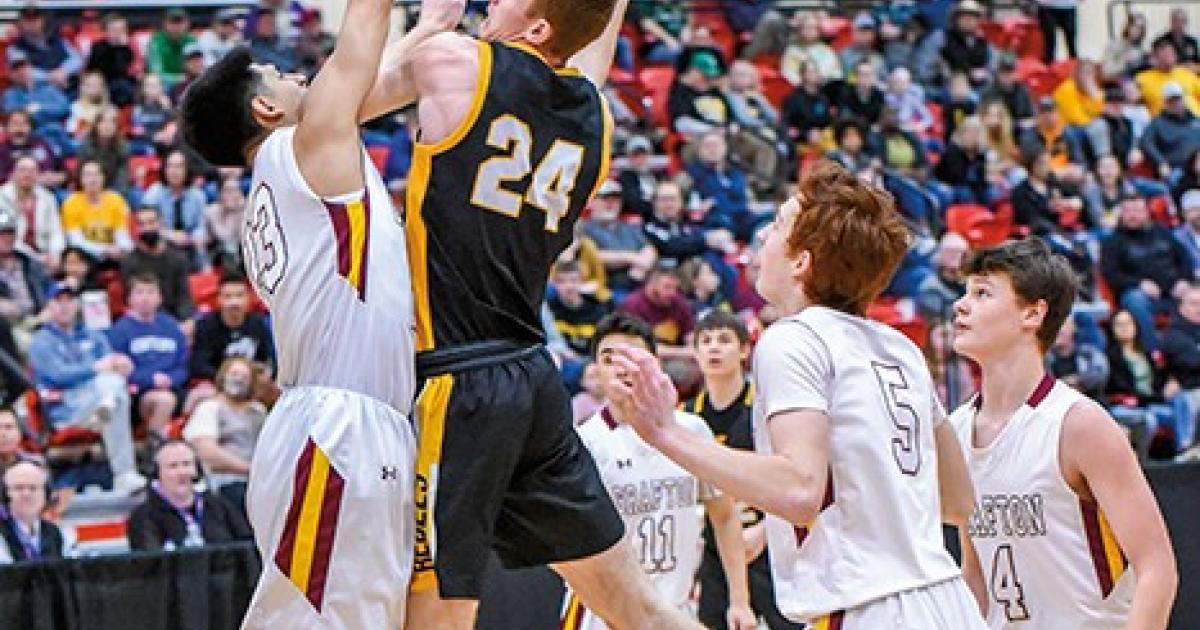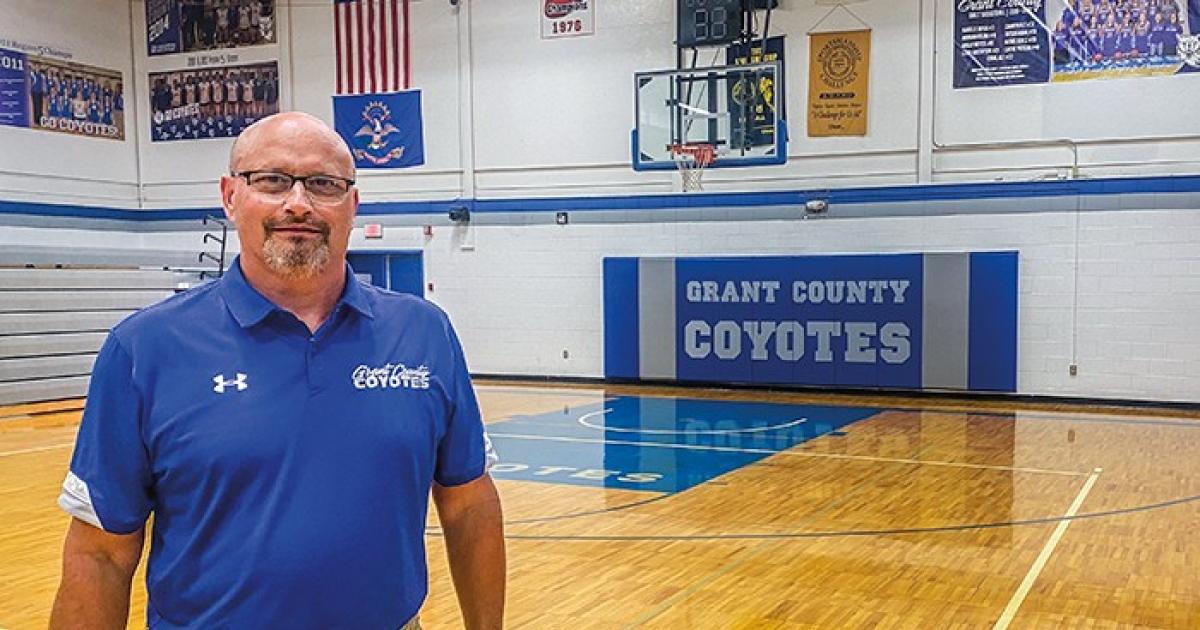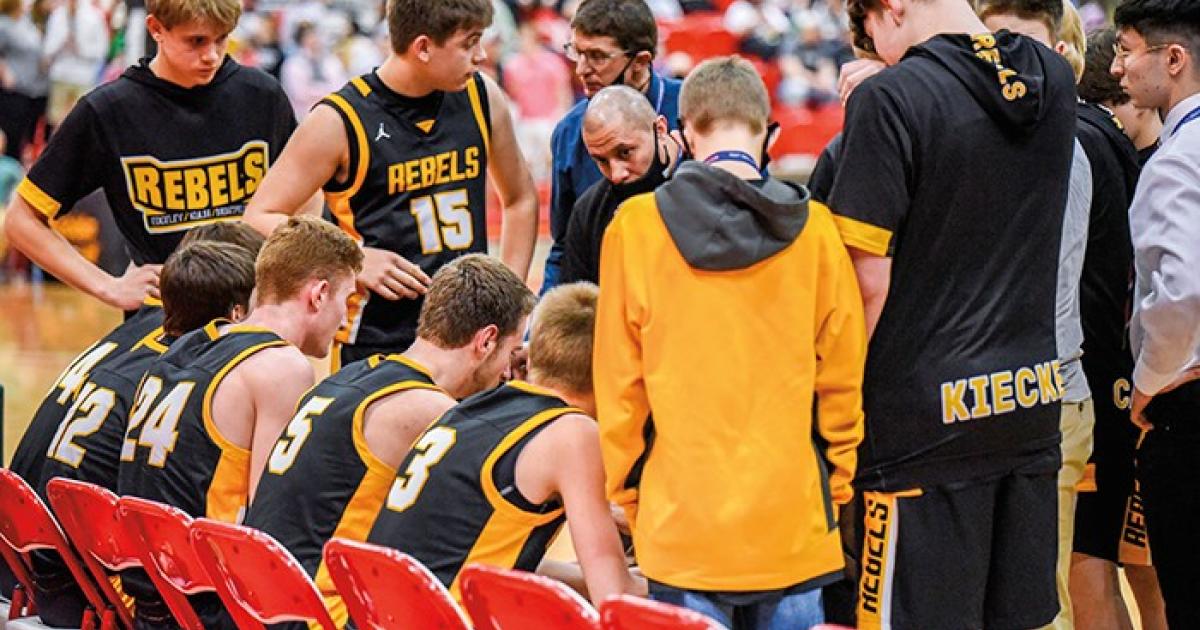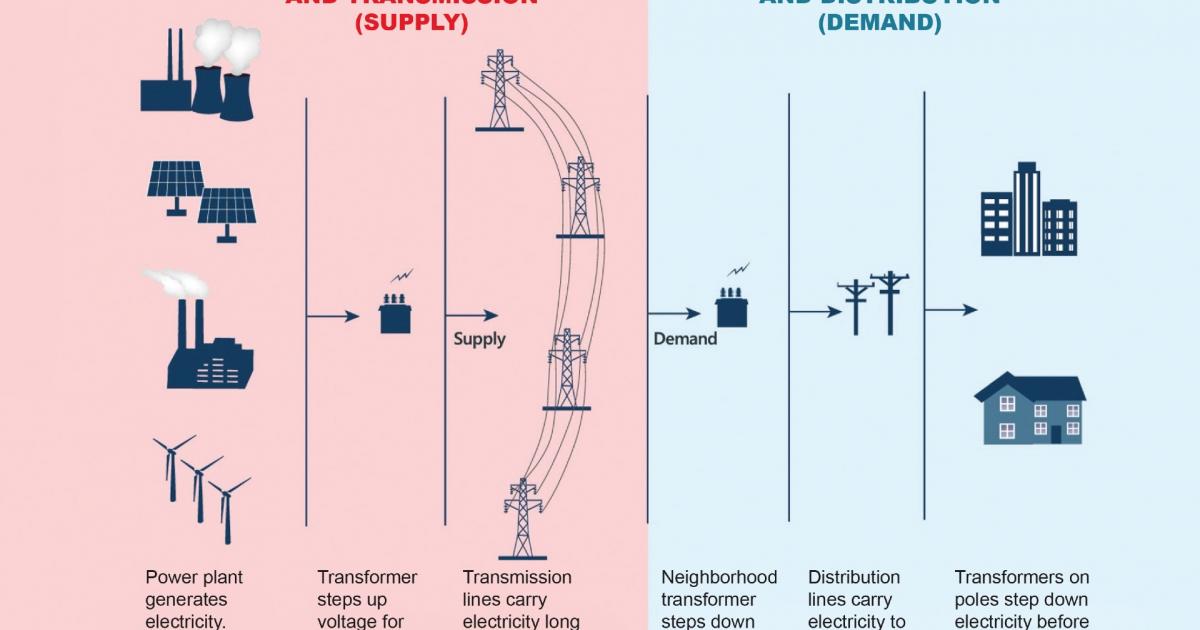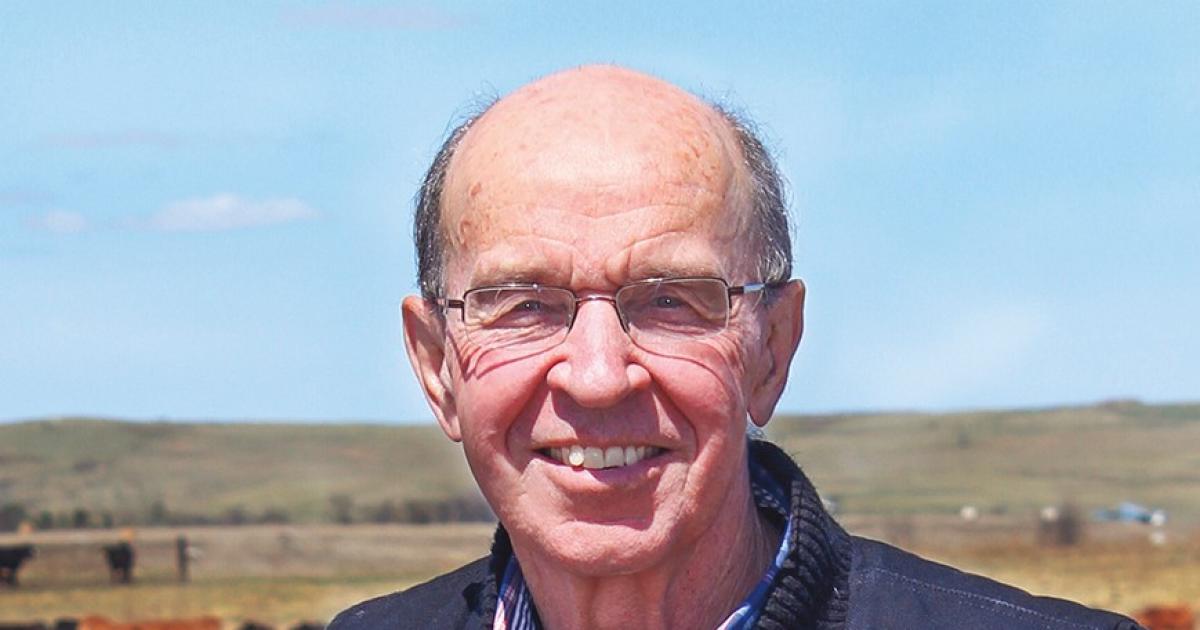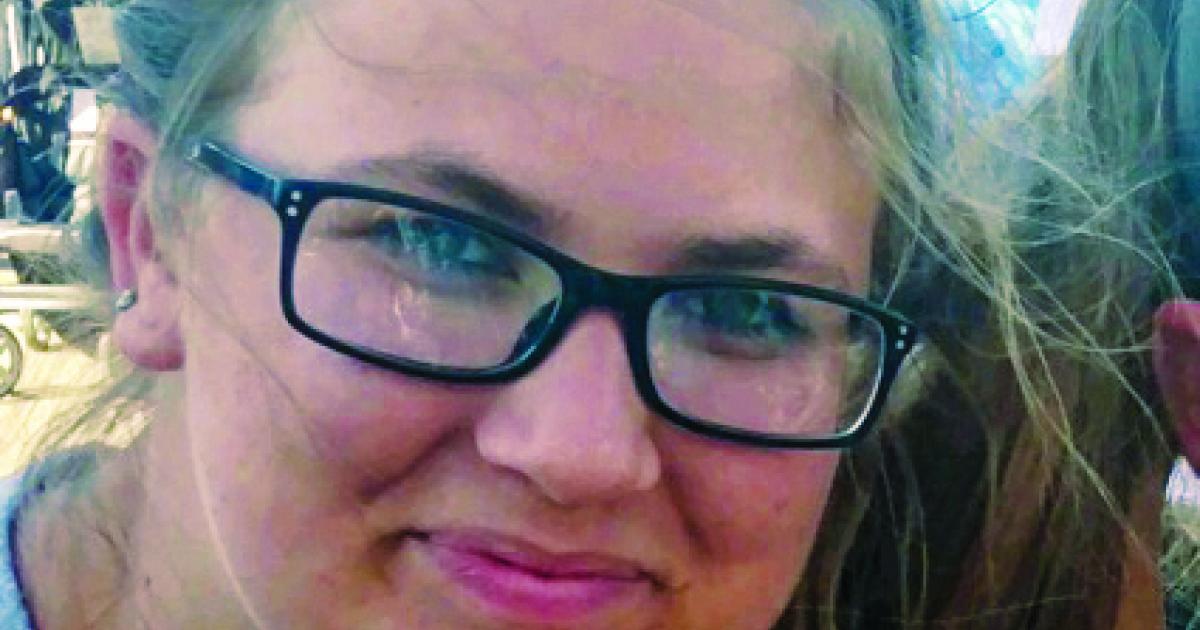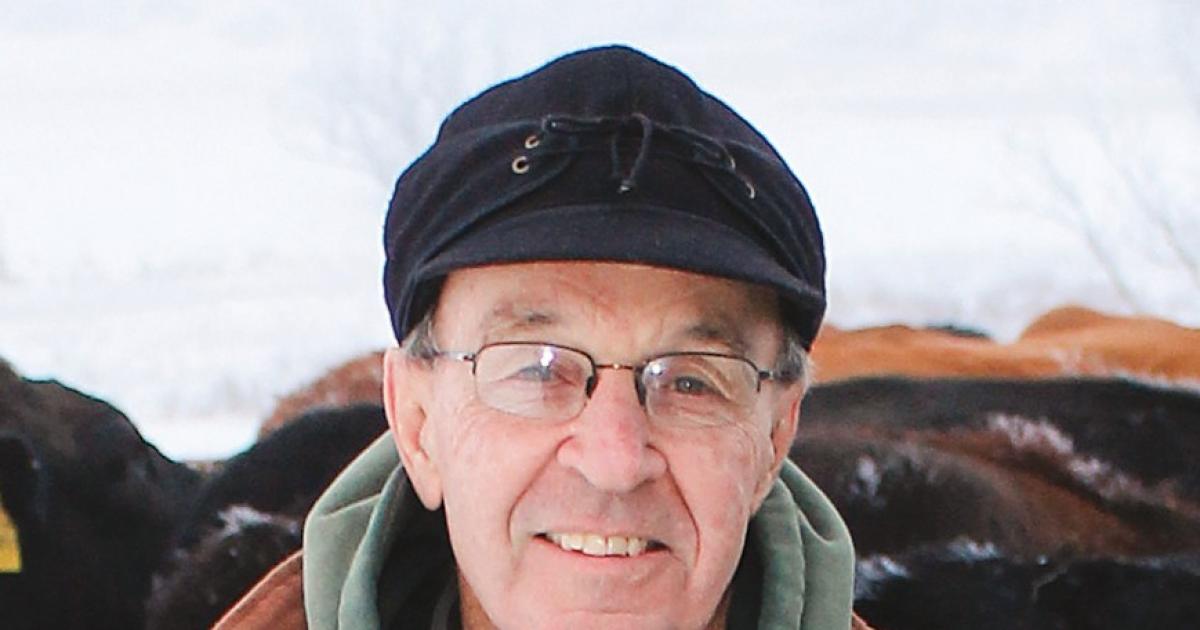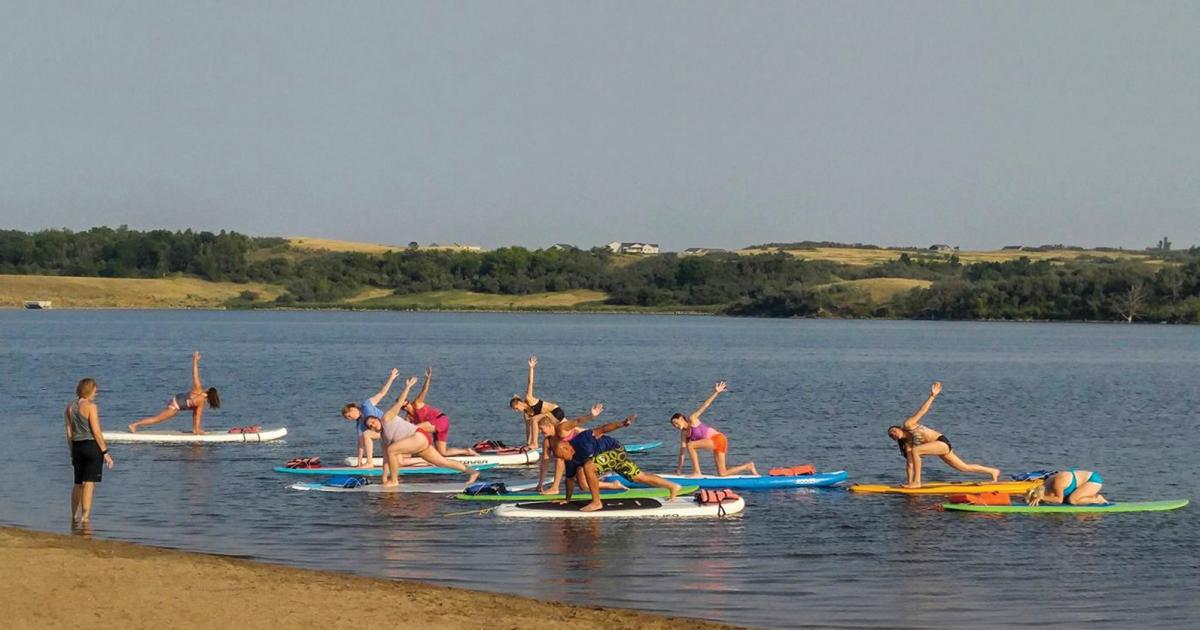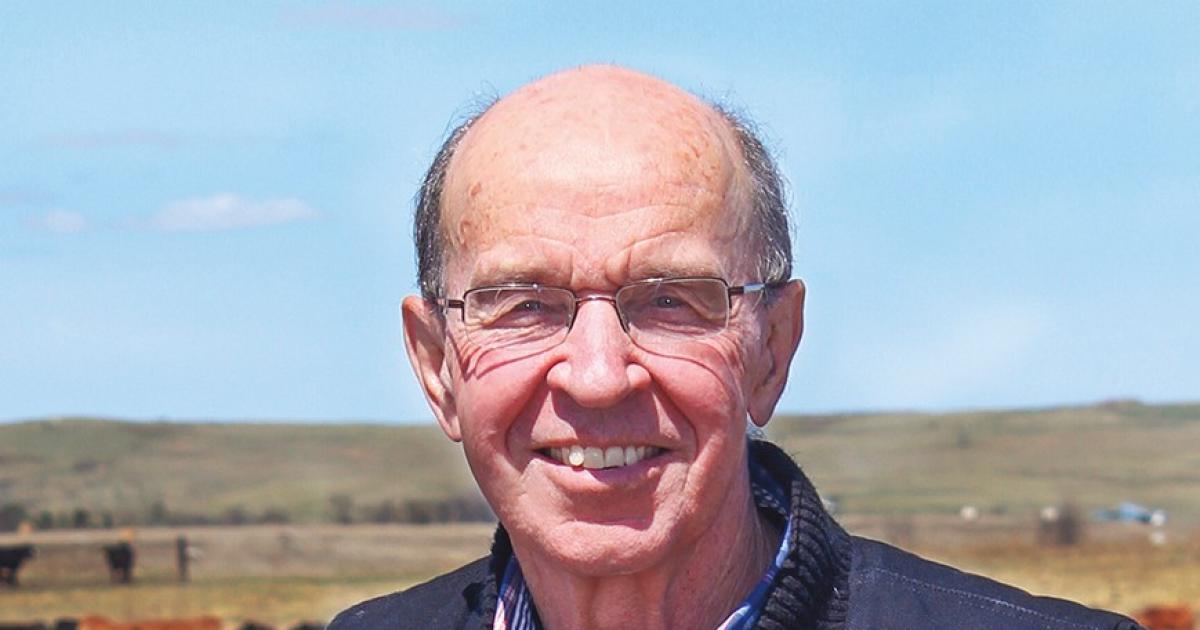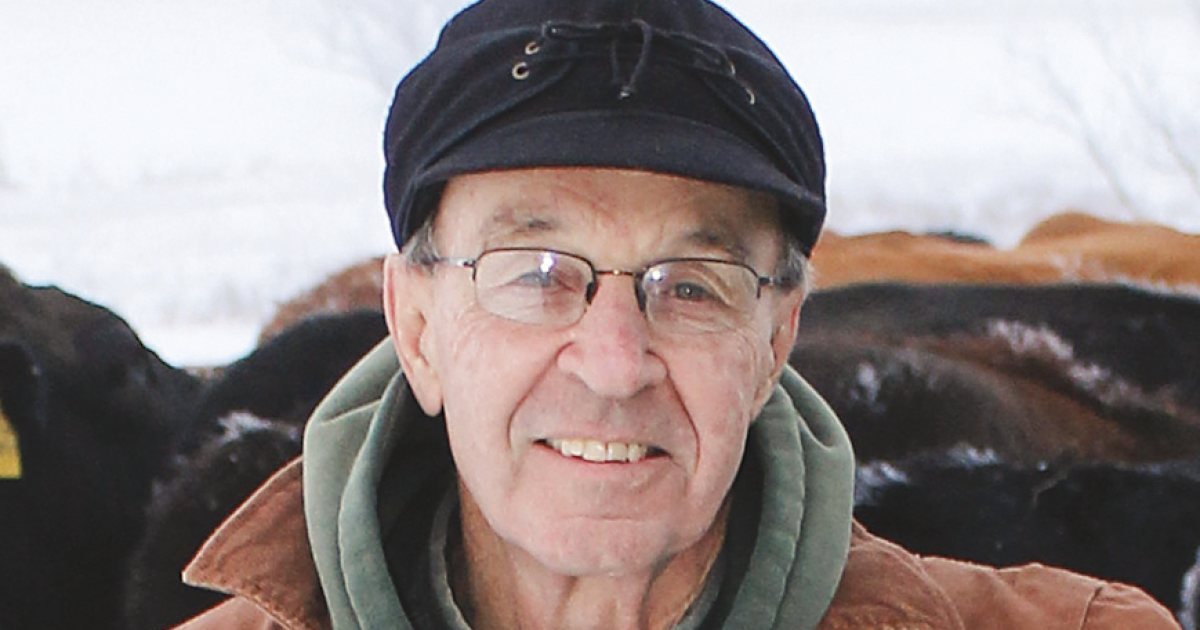Erasing lines of red, blue, green or any other color, and redrawing mascots, the ink is ever-changing among Class B schools in North Dakota, as they stretch boundaries to continue to offer opportunities for shrinking student populations.
When the Edgeley/Kulm/Montpelier (EKM) Rebels hoisted their second-place Class B boys basketball trophy into the air last March, it culminated a cooperative agreement that began in 2008-09 when seniors on the team were in kindergarten.
Edgeley/Kulm/Montpelier's Alex Huber (24) lays one up against Grafton defenders in the semifinal game of the 2021 North Dakota State Class B Boys Basketball Tournament. Huber and the Rebels went on to win the game by three points, earning a place in the state championship game. Photo courtesy Rhonda Tjernlund/Tjernlund Photography
That’s when Edgeley and Kulm shook hands to form the first of an ever-expanding sports co-op that eventually stretched to Montpelier for basketball and to Ellendale for football and wrestling.
“We had that relationship that started with basketball and it built its way into the other sports,” explains Adam Schlepp, Kulm High School principal and athletic director.
Across the state in western North Dakota, Grant County High School (GCHS) in Elgin was poised to floor only eight boys basketball players in eighth through 12th grade next season.
So, last month, GCHS and Mott/Regent High School inked an application to create a boys basketball co-op next season. Both schools have other agreements with other districts in other sports, and those co-ops will continue. The schools have applied to the N.D. High School Activities Association (NDHSAA), which formally approves each co-op agreement or dissolution in the state.
It’s all with one goal: put a team on the hardwood, the turf or the track.
With shrinking student populations, there’s truly no alternative. Losing sports or other extracurricular activities equals losing even more enrollment as students go elsewhere to play, says GCHS Principal and Athletic Director Terry Bentz.
“Part of being in school is being involved in extracurricular activities,” he says, as those activities help teach teamwork, responsibility and discipline.
“I co-op, because I want 10 more kids out that are having fun, even if they’re playing a C squad or JV, and I think that’s huge. Then mom and dad are happy and the communities are happy. They don’t give out trophies for undefeated C teams, but the kids sure brag about it,” Schlepp says.
“Success breeds success. Seeing something in their lifetime that’s achievable and something to strive for, that’s huge,” he says. EKM qualified for the state Class B basketball tournament in 2020 as well, but was not able to compete due to COVID-19. Edgeley won a state boys basketball championship in 1990, while Kulm won in 1958. Neither community had returned since.
But co-op agreements are not inked to win tournaments, Schlepp says.
With few players, eighth-graders find themselves facing a senior on the court, as junior varsity (JV) and C squads disappear.
“When you can’t field a JV or can’t field a C squad, those kids on the fence are forced into situations where they’re playing a team like us this year that was pretty darn good and maybe they should have been playing a C squad or JV, but they just didn’t have the numbers to do that,” Schlepp says. “(With a co-op), your kids that are still developing, they have the ability to play another kid that’s still developing.”
“Could Kulm have a team for basketball? Sure, we could probably find five kids to play, but we wouldn’t be very good,” Schlepp says. “I like to think we need all three for sure to complete that team aspect.”
The EKM co-op starts with elementary school, which some schools have avoided, and Schlepp thinks that’s created team success as well.
“It takes a few years to gel and for relationships develop. I think that’s for sure one of the pros that’s pushed it,” he says. “It builds those relationships. It’s like a family.”
Inking the deal
Co-op agreements are not uncommon, as the NDHSAA can attest. The association approves each agreement or dissolution between schools.
“As soon as we finish one board meeting, there are usually requests for dissolutions and new co-op agreements waiting for me,” said Brian Bubach, NDHSAA associate director. In 2020-21, the NDHSAA approved nearly 70 dissolutions and about 135 agreements. These include multiple sports within schools and Class B schools reaching to Class A schools to offer some students activities that don’t exist within the smaller district, such as gymnastics or baseball. There are more than 700 co-op agreements between schools in North Dakota, including sports and fine arts. The NDHSAA has 170 members.
Other statewide statistics shared by Bentz help explain co-op agreements as well. In 2002, for example, 185 schools fielded 4,002 boys basketball players. In 2019, 161 schools fielded 2,914 players.
The NDHSAA oversees the approval of co-op agreements and dissolutions since the co-op bylaw went into effect in 1981.
“It was created years ago so students would have opportunity,” Bubach says. “We are here to help our schools and are very cognizant of that.”
Dissolutions come about as demographics change or schools cannot reach agreements, he says.
Keeping a co-op intact is not an easy task.
“There are still traditions that you try to please and that can be tougher when you’re dealing with three different traditions,” Schlepp says of the EKM co-op.
Headaches arise in everything from transportation to finding an open gym.
And for the Grant County/Flasher Storm football team, there’s one more hurdle – a time zone, with Elgin on Mountain Time and Flasher on Central Time. That means Flasher players must wait an hour after school before football practice even starts.
Geography is a hurdle, too, as students begin to find themselves driving an hour for practices. Both the EEKM Thunder and GCHS/Flasher Storm football teams utilize practice fields midway between communities to help travel time.
“You get creative and try to make the most of it,” Schlepp says.
The main hurdle, however, may be community identity.
“It’s that community identify piece. … It’s those first steps of deciding what do we call ourselves and where are we going to have our games? Those are the two big ones,” Bubach says. “Change is ever present and to make these things happen, we have to work together, which means everybody has to contribute and give to the overall good.”
“The biggest challenge are the adults losing their school identity from when they were in school. They have a real hard time with accepting that change,” Bentz says. “No one likes to have to co-op, but it’s something that has to happen if you’re a realist. The kids always adjust and we’re seeing that here.”
The Grant County Coyotes have walked through both a school district consolidation and sports co-op agreements, dating back to the 1980s. As the only high school in the county, GCHS will play as the Grant County/Mott/Regent boys basketball team upon approval by the NDHSAA. Possibly uniquely, they do not plan to have a mascot, and they don’t plan to buy new uniforms for next season either, wearing the jerseys of the home court and rotating uniforms for away games.
“It’s been the best experience that I’ve ever gone through in a co-op. They have been nothing but gracious, respectful, very courteous. … You have to give and take in a co-op,” Bentz says of working with Mott/Regent in developing the arrangement.
“You compare it to a marriage. Some work. Some don’t. Some are meant to be forever. Some aren’t. Some fall apart,” Schlepp says. “It’s not as easy as everyone thinks to keep the glue together. Whether you win state or whether you don’t win a game, you definitely have some of the same hurdles. It definitely doesn’t make it any easier just because you’re winning.”
Luann Dart is a freelance writer and editor who lives in the Elgin area.


